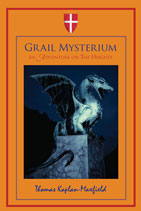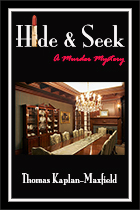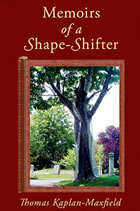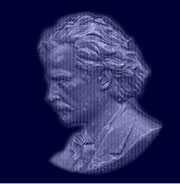
The Professor as a Character
“A cliché is a profound truth taken at a distance.” (TKM)
For my BC students: WHAT IS “CREATIVE NONFICTION”?
There is some confusion about the definition of "creative nonfiction" as a genre, so here is a longer explanation. Actually there is no agreed-upon single definition. Some consider creative nonfiction to be nonfiction that involves the individual narrator in some way; others say that's not necessary. I've found that the word "creative" tends to be either a license for writing what's more appropriate to diaries (and less for public consumption) or else it's restrictive, leading writers to think they aren't writing "creative" nonfiction if they are writing, say, a research paper. Which I disagree with.
Thoreau said that all writing is autobiographical, including research work, and I think that makes sense. So no matter what you write, as long as it's nonfiction, it will be in some way autobiographical.
Having said that, I intentionally steer away from a more restrictive definition in order to give students more leeway in what to write.
From Connie Griffin's new book To Tell the Truth (Prof. Griffin teaches at BC and elsewhere):
"Variations on the fundamental elements of creative nonfiction create a variety of subgenres, which range across memoir, auto/biography, the essay (in its various guises), and literary journalism. Literary journalism, in turn, ranges across the profile, the feature, the cultural commentary, travel, and nature writing. Even this list is not exhaustive..." (p 37)
Prof Griffin delineates various subgenres of creative nonfiction, with the result that the term can apply to all forms of nonfiction--in short, anything that's not fiction, poetry, or drama. The reason why I choose to define the genre in the broadest possible terms for my Creative Nonfiction students is that a) no one knows or agrees on exactly what it is, and b) the broader the definition, the more options students have for working in it.
I do make one important distinction, however, on the class syllabus. At the end of the semester students will turn in two different essays for grading, only one of which may be autobiographical. This distinction makes no sense if all creative nonfiction is in some way autobiographical. So to be as clear as I can be, only one student essay may be specifically about the narrator's life in a direct sense. If you (the narrator) are the main character in your essay, that's to my mind autobiographical.
This definition leaves a lot of room in students' second essay to include the "I" as narrator. For example, Annie Dillard's "Living Like Weasels" I would NOT call autobiographical, because we learn precious little about the narrator. What we do learn is about weasels and the 'lesson' she derives from how they live. Technically, the essay is written with an "I", and therefore is, on some level, autobiographical. But her life is neither the focus nor the point.
So much for what is strictly and not strictly autobiographical. The next question is: What other sorts of essays fall under the rubric of "creative nonfiction"? For my class anything does, including interview, research paper, etc. For other professors in other places,a narrower definition applies. That's life.
Insofar as "creative nonfiction" can refer not only to what you write about but how you write about it, the "I" narrator can be used in whatever you write about. So you MAY--but you do not have to--write a research-type paper for my class that involves the "I" narrator, and which includes your thoughts and even experiences with some subject you are researching.
Of course, you see what happens at this point: If your so-called 'research paper' becomes too involved with the "I", is it still a research paper? Stop asking me these questions I can't answer!
Sorry--the "I" got involved momentarily in this explication. Your research paper when it involves the "I" is no longer strictly speaking a research paper (that is, you probably can't use such a paper for a bio or history class). The larger point is that working in creative nonfiction allows you a range of writing techniques, so that it can be appropriate to include yourself and even your own experiences in a research essay. A creative nonfiction interview might consist of someone you know (about which you inform the reader in an introduction), and then could incorporate how this person changed your life--or the interview might even bleed over into non-interview. Nature writing or travel writing can include the "I" as experiencer of nature or of an exotic location.
For me always, research is required. Or as Jeanette Winterson notes, "The true writer knows that feeling must give way to form." Your goal as writers is to find the form you are working in and then mine that form--since the form will be the 'type' of essay or even the 'basic idea' that a reader will recognize and then be able to follow.
I do not assign a text for the Creative Nonfiction class because so often that ends up to be wasted money. I find it's more productive and instructive in class to read and critique one another's essays rather than assigning essays and spending time taking them apart in class. But I expect you on your own to read as much as possible in whatever type of essay you are working. I will give you suggestions from time to time, but the burden is on you to do the reading (that is the point of the line item "Week's research" on your essay checklist). I explained all this in the first class, but if you are having difficulty finding essays to read, ask me--I have a zillion books to lend (though you get an F for the class if you don't return them). You have the world at your fingertips, so google the type of essay, google nonfiction essays, etc to see how other people do it--we all learn by example.
Buy a copy of my new e-book Grail Mysterium: An Adventure on The Heights here (the print version is available here). It's a mystery-adventure story set at Boston College.
Sample or purchase Grail Mysterium at Smashwords: Type in Coupon Code EE67T when buying the ebook to receive 20% off through October 2012.
Read reviews of Memoirs of a Shape-Shifter at Kepler Press.
Buy the print version of Memoirs of a Shape-Shifter from Amazon.
Buy the e-book of Memoirs of a Shape-Shifter from Amazon.
"Gothic America" is also available on the CommonDreams website.
Read my interview with Reader Views on Memoirs of a Shape-Shifter here.



